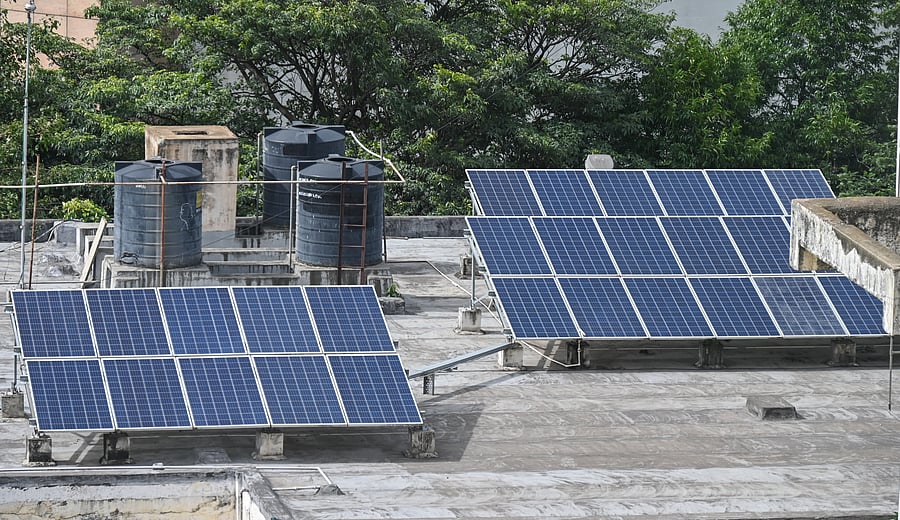
Karnataka, which introduced South India’s first renewable energy policy in 2009, has seen its solar capacity rise from 126 megawatts to approximately 9,530 megawatts over two decades.
Credit: DH FILE PHOTO
Bengaluru: As concerns mount over waste generated by ageing solar energy parks, the Central Pollution Control Board (CPCB) has released draft guidelines to prevent pollution and contamination caused by end-of-life solar panels.
The “Draft Guidelines for Storage and Handling of Waste Solar Photovoltaic (PV) Modules, Panels or Cells” call for new regulations as the country’s solar installations continue to grow rapidly.
“Scientific and proper recycling of such waste will prevent damage to the environment and can generate a substantial amount of recovered material, which can be further used as raw material, thus reducing the need to extract new resources and conserving energy,” the draft states.
Karnataka, which introduced South India’s first renewable energy policy in 2009, has seen its solar capacity rise from 126 megawatts to approximately 9,530 megawatts over two decades. However, the state’s amended solar policy from 2017 does not yet address the issue of solar waste. Panels manufactured before 2015 typically have a shorter lifespan, reaching end-of-life sooner than newer models, which can last 25 to 30 years.
Solar panels are made up of materials such as glass, aluminum frames, silicon wafers, and metals like copper, silver, lead, cadmium, tellurium, gallium, arsenic and tin. Improper handling of these materials can lead to contamination of soil and water, air pollution from burning waste, and health hazards from exposure to toxic substances.
The draft guidelines note that heavy metal leaching, particularly of lead, cadmium and arsenic, poses significant environmental risks. The public can submit feedback on the draft until June 25.
The proposed rules include a ban on open dumping of PV waste and suggest classifying solar waste as electronic waste. The guidelines recommend bringing solar panel waste under the extended producer responsibility (EPR) framework, which would require manufacturers to establish systems to collect end-of-life panels from consumers.
Producers would also need to provide consumers with clear information on collection systems, take-back programs, recycling facilities, and waste pickup locations. Companies would be required to maintain a database of their consumers and bulk customers.
The draft also proposes safety standards for storage, including protective sheds, limits on stacking height, measures to prevent injuries from sharp materials, and safeguards to avoid heavy metal leaching. Storage areas would need to be inspected regularly.
